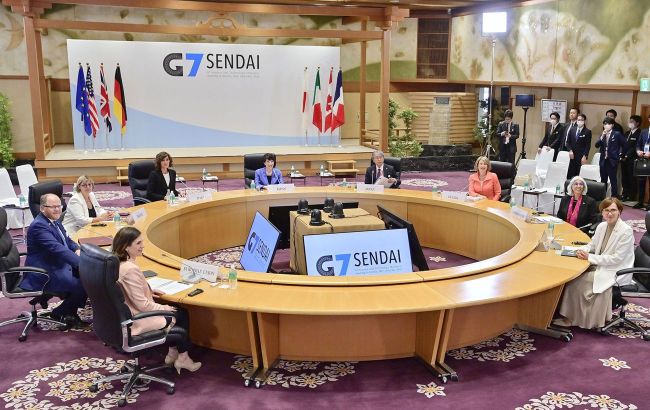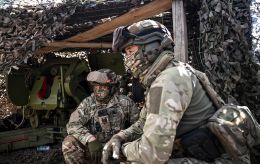G7 leaders to discuss new legal theory for seizing Russian assets - Reuters
 G7 leaders plan to discuss a new theory of compensation for Russian assets (photo: Getty Images)
G7 leaders plan to discuss a new theory of compensation for Russian assets (photo: Getty Images)
At the end of February 2024, the leaders of the G7 will discuss a new legal theory that will allow for the confiscation of frozen Russian assets worth $300 billion. It will allow the seizure of Russian assets in "very specific circumstances," according to Reuters.
The agency cited two of its sources and a British official as saying that U.S. and British officials have been working in recent months to intensify efforts to confiscate Russian assets frozen in Belgium and other European cities. Sources hope that the G7 leaders will agree to make a more decisive statement when they meet in late February, around the second anniversary of Moscow's invasion of Ukraine.
The United States, with the support of the United Kingdom, Japan, and Canada, has proposed that G7 working groups develop options for the G7 leaders. At the same time, the agency's sources warned that one should not expect an "actual announcement" of asset freezes during the February meeting.
According to one of the sources, the new legal theory will allow assets to be seized in "very specific circumstances" related to the aggressor country.
"The U.S. has been able to develop a legal theory for how Russia can be held accountable that we think will be held up internationally in the courts and will be widely recognized as legitimate," the source told Reuters.
According to the two sources, no decisions have been made yet, and some countries, including the United States and the United Kingdom, need legislative changes to create the necessary powers and carry out such seizures.
Confiscation of Russian assets in favor of Ukraine
The G7 leaders have long argued that under international law, Russia is obligated to end the war and compensate Ukraine for the damage it has caused, which, according to the World Bank, already exceeds $400 billion.
In a statement on December 6, the leaders of the Group of Seven said they would explore all possible ways to help Ukraine obtain compensation from Russia in accordance with their legal systems and international law and instructed their ministers to continue working on this issue.
On Thursday, December 28, the Financial Times reported that Washington had proposed that the G7 countries set up three working groups to study the legal issues surrounding confiscation; how to apply such a policy and mitigate risks; and options for how best to direct support to Ukraine.
In 2024, Italy will hold the G7 presidency. The country, along with a number of other European countries, is wary of developing a mechanism for asset compensation, fearing possible consequences for financial stability and retaliation from Moscow.
The White House noted that certain conversations with allies are underway, but it is too early to talk about the transfer of Russian assets to Ukraine.

